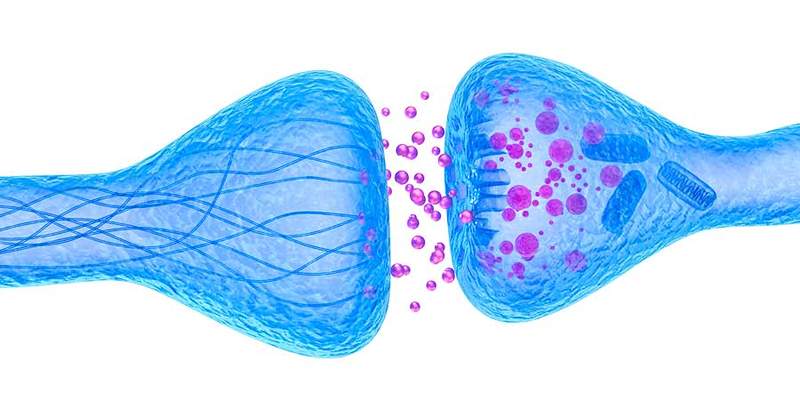Emotional contagion 9 ways to strengthen your emotional immune system

- 1100
- 52
- Jeffery Jones
The emotional state of a person can be affected by exposure to the emotional expressions of their social contacts, which means that mood can spread from person to person, even through our online interactions, by a process called "Emotional contagion".
“Globalization implies a greater capacity to spread emotions, it is a natural phenomenon that is accelerating and amplifying, because of how easy it is today to communicate and connect, we have a great capacity to infect emotions, so if you can choose: Distribute positive emotions!". Elsa Punset
Content
Toggle- How do mirror neurons work?
- How do you react to others?
- Emotional contagion in your day to day
- Strategies not to get carried away by emotions
- Stress: potentially contagious and harmful
- Social networks and viral emotional contagion
- The increase in stress due to social networks
- 9 ways to strengthen your "emotional immune system"
- 1. Be aware of your emotions
- 2. Exaggerate the activators of good humor
- 3. Consume cocoa
- 4. Do sports
- 5. Salt with friends
- 6. Eliminate or limit what wears you
- 7. Focus on what you do well
- 8. Surround yourself with positive people
- 9. Think carefully before saying or writing a negative message
- Conclusions
- Links
- Other references
How do mirror neurons work?
Emotions are transferred, partly by an unconscious imitation that occurs through observing, scanning and registering nonverbal language, which includes: posture, body movements, facial movements and even the eye. When people synchronize certain behaviors motivated by an emotion, "emotional contagion" happens.
Have you been to a place where people are yawning and ends up yawning, even if you are not sleepy? This is because the brain is interconnected through a neuronal network called mirror neurons, which make us possible: imitate gestures, facial expressions, emotions and feel empathy, that It helps us identify with a social group and feel integrated into that group. People with autistic spectrum disorder, with schizophrenia or with antisocial personality disorder do not show such empathy capacity, common in others, but in different degrees.
Emotions modify your biological response and activate other brain areas, the William Doherty emotional infection scale, presents psychometric parameters for measurement. All people have different degrees of Emotional susceptibility, In some people it would seem that many things that happen around them do not disturb them too much and other people can be very affected by something that would look like a small detail, they are highly sensitive people. It has been observed that Emotional contagion varies according to the genre of the subjects, being the women most susceptible to it.

People usually resemble the subjects with whom they live, not always in terms of their physical features, but as soon as their gestures, then There is the natural tendency to imitate each other, Even in facial expressions, therefore, we find some similarities in the members of a couple and in a child, their gestures are usually more similar to those of the person who is in contact with him for a longer time, even if they do not physically look like too much.
How do you react to others?
Usually your way of reacting to different situations is sometimes somewhat exaggerated either It is usually equanimous? How do you show others that you disagree with any of your ideas without attacking your person? Remember that: "Many can forget the things you have told them, even if they have been important, they can also easily forget the things you did for them, even if they were very significant for you ... but It is more difficult for you to forget how you made them feel, So it is very important to take care of this aspect to foster healthy relationships ”.
Emotional contagion in your day to day
The work environment is very important, since we spend many hours a week in it and a good leader understands that The emotional well -being and health of an organization are intimately related. However, not all bosses within companies have this in mind, having an authoritarian boss and who is constantly in a bad mood can influence the work environment and even the results, because Employees are often more difficult to identify with the values and objectives of the organization Or as it is commonly said: "Put on the shirt".
Samples Tolerance and respect Towards people who are in your life, even if they have different opinions or skills to yours? How do you treat the people with whom you are in conflict? Practicing emotional intelligence can make better not only your interpersonal relationships or with others, but it helps you improve the intrapersonal relationship, which is the most important, because it is the one you have with yourself. Good emotion management will help you work better in your home, in your work, with your partner, friends, at school and in the other places where you develop, giving you more opportunities and not closing doors. Inside work environments and other contexts, Attitude is important, not only fitness.

Strategies not to get carried away by emotions
Do not take the hurtful comments personally, those many sometimes have more to do with what the person is projecting himself. It is true, that you cannot choose the circumstances that are presented to you in the daily living, sometimes they are very challenging, or you can choose your classmates, but Yes you can modify your way of responding to this, making it more intelligent and adaptive ways.
When we stress or have an emotion such as anger, sadness or fear, our response in the blood system is modified, as well as in the access and flow of oxygen to different parts of our body, so it is highly recommended that when an emotion experiences an emotion Negative try breathe long and deeply, This can be a good resource, because you do not have to withdraw from a "toxic atmosphere" you cannot evade. By not giving rise to negative emotions, you can use your cognitive processes more easily, which helps you reach more effective solutions. On the other hand, poor emotional regulation is a serious inconvenience for the development of healthy social ties.
 Neuronal Synapse: Synapse Types
Neuronal Synapse: Synapse Types Stress: potentially contagious and harmful
Many emotions and ways to respond come from the cerebral tonsil, which is one of the main responsible for keeping our emotional memories, especially negatives. Immediately activate our coping system, to avoid conflict, escape or flight and prepare the body for it, These answers help your protection and survival when necessary.
The limbic system can be faster than cognitive And many human beings are automated to operate from there before many daily stimuli. When activated, due to stressful situations, substances such as epinephrine, adrenaline and cortisol are produced, which activate the body for a possible attack, either real or perceived, In turn, train the agency to give an answer. However, you can make some cognitive skills decrease at the moment, which is inconvenient when we need to maintain a business conversation or reach the resolution of a problem, For example. At the same time, Exhibition constantly to these biochemical changes can become harmful to health.

The stress atmosphere in the group can affect cortisol levels, making them higher. A study was conducted in basic education children and Stress was directly related to learning, language and care problems, as well as mental health problems. The stress that teachers feel is usually linked to the stress levels that students experience.
In our society, we are presented through different channels, programs and media various audiovisual contents that can generate empathy stress, it is a phenomenon that must be taken into account for the care of our health, because it occurs even when we are close to a person who suffer constant stress.
Stress is an important threat to health in contemporary society. It is the cause of a series of psychological problems such as fatigue, insomnia, anxiety disorders and depression, among others. His chronicity can cause some physical illness to occur, Since stress affects an organism in general in a physiologically quantifiable way, a way of measuring this is by increasing stress hormone concentrations: cortisol.
Social networks and viral emotional contagion
Social networks are used as communication channels for millions of people day by day. The communication and emotions that are expressed in these media and can affect the emotional state of other people. Some people are more susceptible to emotional influence than others, According to the researchers.
Hyperconnectivity can make our relaxation periods change, because many people instead of taking time for themselves and relaxing in other ways, now usually take their electronic devices and try to "catch up" or vEr some series or program, which makes the brain relax, but remain active, and if what we are visualized are unpleasant or stressful images or news, that can spread an emotion, which will generate physiological reactions in our body , if they are messages or news that cause us stress, cortisol, adrenaline, noreprenaline are launched and a series of biochemical reactions that force the body to work more even if your body is in rest at rest at rest. To mention an important risk: a strong link between chronic hypercortisolemia and depression has been found.
Veronika Engert said about it: “This means that even television programs that show the suffering of other people can transmit to the spectators stress, since Stress has enormous infection potential. However, High levels of cortisol permanently They are not good, because they have a negative impact on the immune system and has long -term neurotoxic properties."

Any person who faces the suffering and stress of another, especially if it is maintained, has an increased risk of being affected. Therefore, people who work or treat constantly with subjects suffering from chronic stress have a greater risk of potentially harmful consequences in their health, derived from the so -called: "Empathetic stress".
The increase in stress due to social networks
A recent experiment conducted on Facebook raised the hypothesis that Emotions extend online, Even in the absence of nonverbal signals typical of interactions in person, and that there are individuals who are more likely to adopt positive and other negative emotions, when they are expressed in their social network. Experiments of this type, pose ethical problems, since they resort to content manipulation with unknown consequences for the people who participate in it.
On the other hand, Zeyao Yang and Ferrara studied the Dynamics of social contagion randomly Twitter users for study And they only observed the answer, they did not use content manipulation, but created a model using algorithms to measure the emotional response of the Tweets, classifying them as: positive, negative or neutral and found that there is indeed an emotional contagion; However, there are good news: Positive emotions are easier to spread.
“What you tweet and share in the social media is important. Often, you are not only expressing yourself, you are influencing others ". Emilio Ferrara, computer scientist and main author of the study.
You can choose to give positive feedback when the occasion merits and express your gratitude, this can make more positive emotions generate.
9 ways to strengthen your "emotional immune system"
Elsa Punset proposes certain strategies that help us:
1. Be aware of your emotions
Look at the emotions you experience during the day and identify which of them are the ones that most "infections" to others.
2. Exaggerate the activators of good humor
Try to smile, if you have no reason to smile you can search your memory a pleasant or funny moment. Smile and express our gratitude makes you feel better and to spread positive emotions.
3. Consume cocoa
It has antidepressant and stimulating powers that will make you feel better, they also contain theobromine and polyphenols that provide you with a feeling of satisfaction. In the event that your doctor does not contravene it.
4. Do sports
This generates the production of dopamine, serotonin and endorphins, among other neurotransmitters, which contribute to you have a good mood.
5. Salt with friends
Go with friends and people who share your same interests to carry out together of activities that you enjoy.
6. Eliminate or limit what wears you
Avoid criticism and excessive struggle of power, many relationships have their basis in submission and domination, wanting to always try to control situations generate a lot of emotional wear.
7. Focus on what you do well
Try to focus on the present, it will help you eliminate some anguish and anxiety for the past or future and you can more easily focus your attention on your goals and goals.
8. Surround yourself with positive people
Build positive social circles and free yourself as far as possible, from people who constantly transmit unpleasant stress and emotions. How do you choose the people with whom you relate?
9. Think carefully before saying or writing a negative message
Avoid spreading to others of that emotion that can sometimes be passing, but can wear permanent relationships. Practice some breathing techniques can be of great help to learn to focus your attention and change your mental state for a more equanimous.
 Biography of John Mayer (1953)
Biography of John Mayer (1953) Conclusions
Every day we are in contact with unpleasant situations and in our way there are sometimes people who constantly convey emotions such as anger, fear and anxiety, if we are not sufficiently immune enough to it or in balance and health, we "infect" their emotions and stress, so pernicious for health. You can choose! At least you can change your attention to your own breathing, use more effective strategies to manage your emotions and try to integrate with other people or Build circles of people who transmit emotions that contribute to your biopsychosocial well -being.

On many occasions it is not an unexpected situation that fills you with anguish and anxiety, it can be related to some memory of some similar situation, such as people who went through a trauma situation such as having been victims of violence or abuse, they can suffer post traumatic stress disorder; In these cases, psychological assistance is advisable, It is possible to learn strategies to respond differently to stimuli that could be associated with the traumatic situation, while contributing to overcome this type of conflict.
Many people have programming that can make them suffer from more. Remember that your decisions make a big difference, it is in you to choose the way you are going to react to the challenges that arise every day: If you choose to communicate assertively, then foster a more collaborative and less competitive society; If you choose to see problems as opportunities, you can build creative solutions even in the midst of difficulties.
"When Paz and Harmony model, all those around me receive my influence". Virginia Satir
Links
- http: // neurosciencenews.com/Education-Stress-Contagion-4580/
- http: // neurosciencenews.com/Twitter-Viral-Positive-Emots
- https: // www.Youtube.com/watch?v = 0eq-vosefqs
- https: // www.Youtube.com/watch?V = Zddbaowzjku
Other references
- "Yawning detection sensitivity and yawning contagion" by meingold h. M. Chan and Chia-Huei Tseng in I-perception. Published on August 25 2017 Doi: 10.1177/2041669517726797
- Source: Nicola Jones - University of Warwick
- Original Research: Full Open Access Research for “Spreading of Compounds of Mood In Adolescent Social Networks” by Robert W. Eyre, Thomas House, Edward M. Hill, and French and. Griffiths in Royal Society Open Science. Published online Sepcess 20 2017 Doi: 10.1098/rsos.170336
- "The measurement of emotional contagion in social media" by Emilio Ferrara and Zeya Yang in PLOS. Published on November 2015, 6 Doi: 10.1371 / Journal.places.0142390
- Source: Robert Perkins - USC (University of Southern California) The Research was Partly Feded by The National Science Foundation.
- Original Research: Full Open Access Research for “Measuring Emotional Contagion in Social Media” By Emilio Ferrara and Zeyao Yang in Plos One. Published on November 6, 2015 doi: 10.1371/Journal.places.0142390
- « 70 Julio Verne phrases about imagination and impossible
- Interview with Úrsula Perona, youth and forensic child psychologist »

